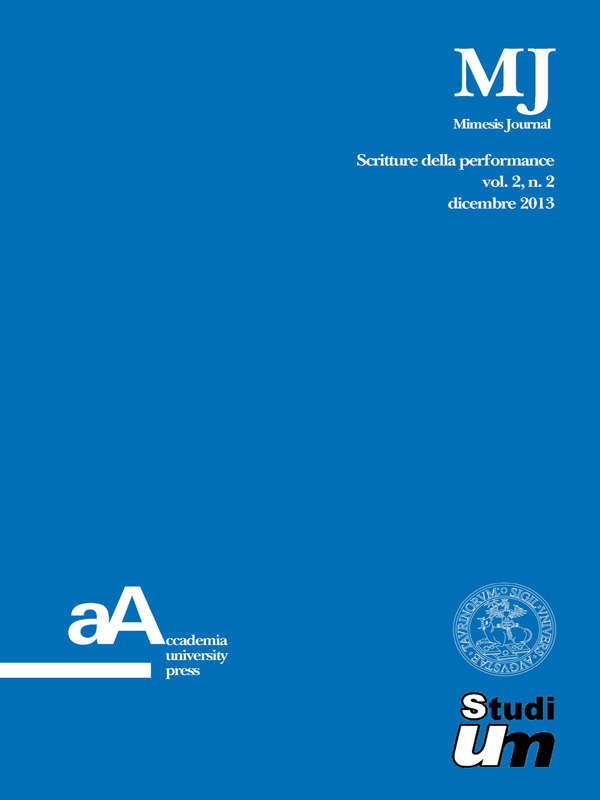Contemporary theatre in the Philippines
The actor in the identity shaping process
DOI:
https://doi.org/10.4000/mimesis.342Parole chiave:
Filippino contemporary culture, identity, postcolonial theatre, mestizo, Tiatco, pabasa, sacral performances, sinakulo, political theatre, PETAAbstract
The Filipino contemporary culture (in this case also theatre) can be seen as a great example for anyone who would like to speak about the postcolonial identity of the nation. The Philippines – because of the difficult and complex history of the country – cannot be con-sidered in a binary differentiation: “Asian” vs. “Western”. Moreover, we should not forget that this country – according to Sir Anril Pineda Tiatco in Situating Philippine Theatricality in Asia – «is not only an amalgamation of pre-colonial, colonial, and post-colonial cultures». There is no point in calling for the “authenticity” or the “pureness” of the postcolonial theatre forms (and postcolonial sacral performances), or in the accusation of being “polluted” by foreign influence, as long as the major aim for the Filipino theatre makers is to redefine their own artistic identity. In this article I proposed the distinction between the group identity and the individual identity, being aware of the fact that both of them stay in a constant dependency and each of them negotiates its own importance. If the theatre group is more concerned about social and/or political issues, the individual identity of an actor is not any more so easy to achieve. In the same time, even if we discuss the “common good”, the artistic freedom does not have to be limited. However, we may observe similar situations in other postcolonial countries, I do believe that the Filipino case – because of its double colonial identity – deserves particular attention.


